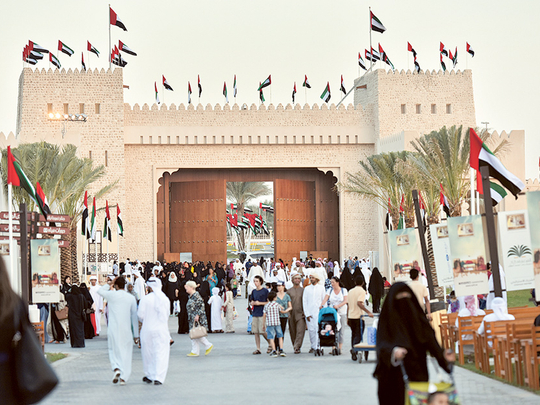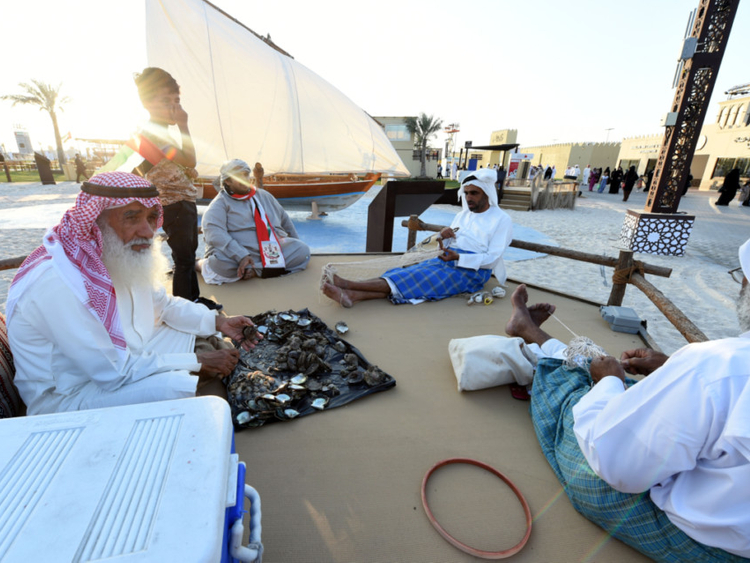
Abu Dhabi: The remarkable success of the Shaikh Zayed Heritage Festival prompted the organising committee to extend the festival until January 21.
Over one million people have visited the festival in Abu Dhabi’s Al Wathba area since its opening on December 1, which was originally planned to end on January 1, making it one of the most successful festivals in the capital.
“It has really been great for the children. I have brought them here about twice a week since it started,” said Umm Ahmad, a mother of four from Abu Dhabi who was visiting the festival.
“There is so many activities for them to do,” she added.
The festival’s impressive grounds greet visitors with a wide array of activities from the UAE and around the world, including live performances, falconry, traditional crafts, live demonstrations, children’s shows and even a funfair, which has been a massive hit with the children.
There are 18 countries included in the festival, which are represented as districts, each carefully designed to represent that country’s architectural heritage including the UAE, Afghanistan, Russia, Morocco, Serbia, China, India, Oman, Kazakhstan and Kuwait.
Over in the UAE district, Jamal Bakhit Al Falasi’s homemade camel fat products such as soaps, facial and hair creams attracted much attention from people.
“This year’s festival has been fantastic. There has been a lot more people visiting, my products have almost sold out,” said Al Falasi, owner of the Wadak Cream.
“Not many people are aware of these types of camel fat products and their health benefits, so it has been great to introduce my items to so many people,” Al Falasi added.
He explained that his products have medicinal properties — from relieving muscle pain and removing dark circles under the eyes to improving blood circulation and hair growth.
Sitting at the centre of the festival’s grounds, Emirati women cooking the traditional Emirati sweet luqaimat and harees drew in big crowds. Some visitors could even be seen asking the women for tips on how to master the dishes.
Three Afghan women weaving carpets at the Fatima Bint Mohammad Bin Zayed Initiative (FBMI) stall in the Afghanistan district also evoked curiosity among the passing crowds.
“At first, people would usually be surprised to see live carpet weaving being done at the festival but overall it is an interactive activity which creates awareness and knowledge on the efforts and intricacy of carpet-making,” said Farshied Jabarkhyl, FBMI operations manager.
The FBMI initiative empowers Afghan women by providing them with work, weaving traditional Afghan carpets. Eighty per cent of the total revenue goes back to these women in the form of salary, access to health care and education for their children. The carpets are sold around the world in FBMI shops.
“The festival has served as a platform for many participating countries to showcase their products and heritage on a larger scale. From my survey, the visitors were a mix of all nationalities and communities in the emirates,” said Jabarkhyl.
The organisers have also included traditional performances from 12 new countries which were not included in the festival’s original programme for the extended period, including performances from Cuba, Jordan, Palestine, Syria, Lebanon, Spain, Africa and the US.
The festival also offers visitors a spectacular water fountain show and fireworks.
While the festival will be open to visitors, performances, music, fireworks and the fountain show have been suspended from Wednesday to Saturday, as a mark of respect for the Emiratis killed in the Kandahar attack.











